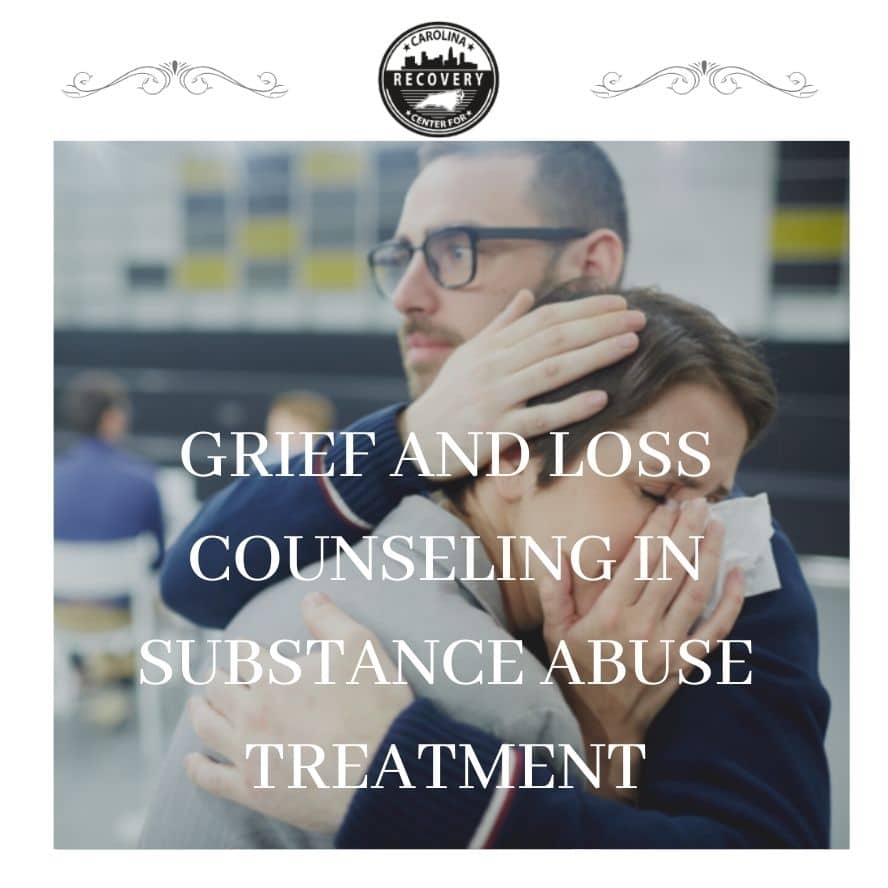Grief and Loss Counseling in Substance Abuse Treatment

Medically Verified: 2/1/24
Medical Reviewer
Chief Editor

All of the information on this page has been reviewed and verified by a certified addiction professional.
Grief is an emotional process that people experience after a significant loss. Grief is common after the death of a loved one or close friend but can occur after any kind of loss that has a profound effect on a person. Most people experience grief over the course of months or years, and it is thought to be a process rather than just one uniform experience. Grief has steps and stages that are not linear, differ in intensity and experience for every person, and can linger if not resolved or allowed to occur.
Grief and substance abuse are closely linked. A large percentage of people in treatment for substance abuse report experiencing a loss or trauma. Many people also experience losses or traumas during periods of substance abuse. The relationship between grief, trauma, and substance abuse is strong.[1] It requires people to receive treatment, not just for their addiction, but also to address their grief. Without grief and loss counseling in substance abuse treatment, rehab may not work well. Without addressing their substance abuse, the grief will linger.
If you or someone you love struggle with grief and substance abuse, you are not alone. You can overcome your addiction while working through your grief. Getting treatment for both these conditions means that you will be able to leave treatment with the skills and clarity you need to live the healthy, fulfilling life you deserve.
The Connection Between Grief, Loss, and Substance Abuse
The emotions that follow a loss or trauma can be extremely uncomfortable. After a loss, many people cycle through feelings of sadness, anxiety, anger, guilt, depression, or despair. If people are able to freely move through these feelings, they can, over time, learn how to move on in their life after the loss. However, moving through this process takes time and can be very painful. Many people look for ways to dull or numb their pain. Some people use drugs or alcohol to do this.
Using drugs and alcohol means getting a brief break from the pain of grief but at a great expense. Over time, many people who use substances to numb the pain of grief develop dependence or addiction to substances. Addiction often leads to long-lasting damage to people’s physical, emotional, and social health. It also does not allow people to process their grief. People who abuse substances often get stuck in their grief and can not move through it. They are left with the devastating consequences of their addiction and the lingering pain of their unresolved grief.
What is Grief and Loss Counseling?
A common piece of advice about grief is that there is no way around it and that you must go through it. This doesn’t mean that you have to go through it completely alone, though. Support and care can be healing during the process. Counseling is another helpful aspect of moving through grief. Grief and loss counseling in substance abuse treatment has one goal, which is to help the grieving person find meaning in their loss and move forward without using substances. Some other common goals of grief counseling include:
- Address unresolved grief
- Identify the cause of grief
- Identify and move through the stages of grief
- Learn coping healthy skills
- Identify strength and support
Grief is a process. While it has stages, people do not often go through them in order.[2] Instead, grieving involves moving forward and backward, setbacks and surprises, and unexpected sources of both pain and strength. Having the professional support of a grief counselor can help people move through the process of grief and learn how to move forward after loss.
Why Do People in Substance Abuse Treatment Need Grief and Loss Counseling?
The relationship between substance abuse and grief can be cyclical. This means that grief contributes to substance abuse, and abusing substances can make grief worse or keep people stuck in it. If only the substance abuse is treated, the lingering grief may result in a relapse.[2] This is why grief and loss counseling can be so helpful in substance abuse treatment.
When someone is struggling with both substance abuse and another issue, such as a mental illness or grief, they require dual diagnosis treatment. Treatment for substance abuse generally includes:[3]
- Individual therapy
- Group support
- Education
- Skill building
- Medication
- Holistic therapies–yoga, nutrition, acupuncture, art or music, nature therapy, etc.
When grief and loss counseling is integrated into substance abuse treatment, people are better able to move through their grief, address the underlying causes of their substance abuse, and learn the skills they need to move forward in a healthy way.
Begin Grief and Loss Counseling in Substance Abuse Treatment Today
If you or a loved one are struggling with grief and substance abuse, you are not alone. Treatment is available to help you on this journey. Please reach out to the staff at the Carolina Center for Recovery. We offer a range of rehab programs to support people at every stage of their recovery from addiction and heal from grief.
If you need substance abuse treatment, do not wait another day. Get the life-changing care you need today. Call today to speak to one of our admissions counselors.
References:

